
Nick Abbot 10pm - 1am
10 November 2023, 22:37 | Updated: 10 November 2023, 23:39
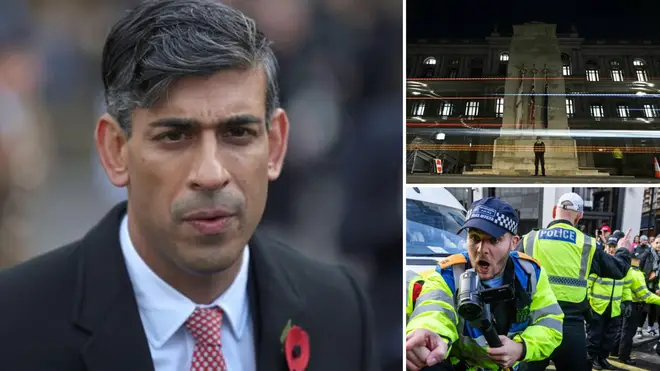
Rishi Sunak has called for unity on Saturday's pro-Palestine march, as police warn there could be serious disorder with counter-protesters also set to come out for Armistice Day.
Scotland Yard said on Friday afternoon that an exclusion zone would be put in place covering Whitehall, Horse Guards Parade, the Westminster Abbey Field of Remembrance and other relevant areas, in effect banning those on the march from going to these locations.
Officers said they thought that Saturday's pro-Palestine march would be the largest so far.
Protesters will again call for a ceasefire in Gaza on the march, which has been controversial because it coincides with the day of solemn remembrance for Britain's war dead.
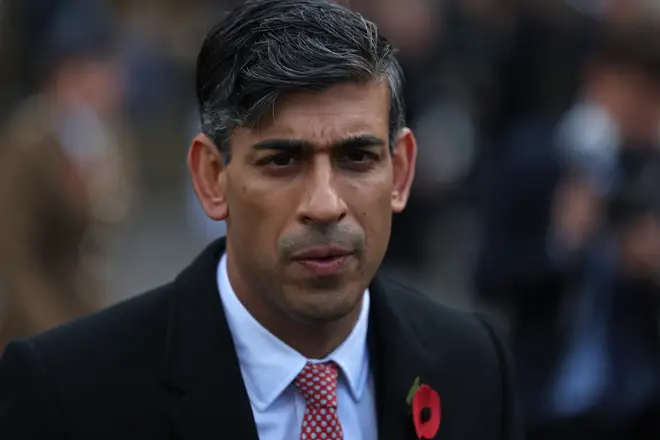
Rishi Sunak said both the police and the government are working to ensure that Armistice Weekend goes ahead without any disruption - which has included banning some smaller protests planned for train stations.
Some counter-protesters, many of whom hold far-right political views, are expected to be out on Saturday as well. The counter-protesters will be allowed in Whitehall and into the area around the Cenotaph specifically.
Part of the police challenge will be to keep these two groups apart and avoid ugly scenes of violence, especially as the afternoon draws on. Police said there could be "serious disorder" if the groups meet.
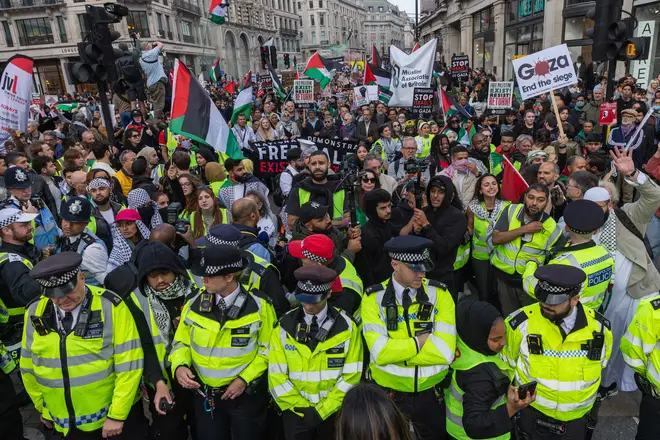
Mr Sunak said earlier this week that a protest on Armistice Day would be "provocative and disrespectful", adding that there was a “clear and present risk that the Cenotaph and other war memorials could be desecrated".
He later met with Sir Mark Rowley, and although still critical of the march, said that he accepted that it would be going ahead.
Mr Sunak issued a further statement on Friday afternoon, saying: "This weekend people across the United Kingdom will stand together in quiet reflection to remember those who made the ultimate sacrifice for our country.
"This act of remembrance is fundamental to who we are as a country and I want to reassure those wishing to pay their respects, attend services and travel that they can and should do so.
“Following my meeting with the Metropolitan Police Commissioner earlier this week - and the Government’s engagement with police forces around the country – the police assure us they are taking all steps to ensure Remembrance services are safeguarded from any protests.
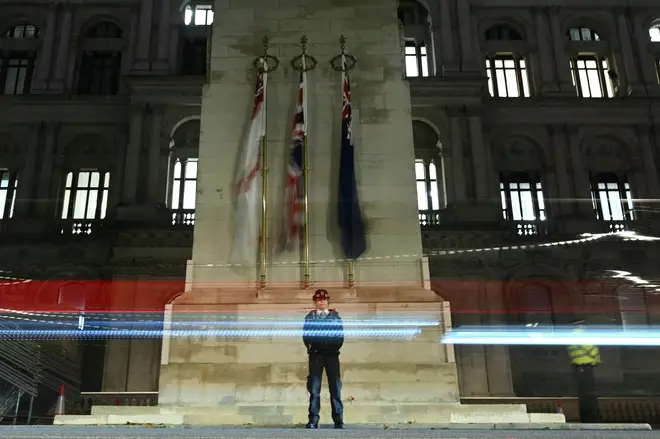
"Protests will only be permitted far away from Remembrance events, and the Cenotaph in Whitehall – the abiding symbol of Remembrance – has been placed in an exclusion zone and will be guarded around the clock to protect it for those travelling to pay their respects."
He added that the government had banned a number of protests that had been planned for train stations, which he says "were only designed to disrupt and intimidate".
“It is because of those who fought for this country and for the freedom we cherish that those who wish to protest can do so, but they must do so respectfully and peacefully," Mr Sunak continued.
"Remembrance weekend is sacred for us all and should be a moment of unity, of our shared British values and of solemn reflection. Above all, this weekend should be about the selfless bravery of our armed forces. We shall remember them.”
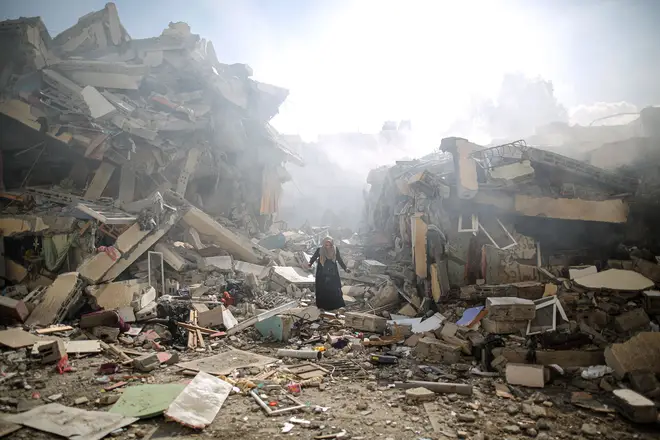
Police warned that they would probably use force to manage the protests at some stage.
Deputy Assistant Commissioner Laurence Taylor, who will be running the police's response on the day, said: "There will be times this weekend where you see pockets of confrontation, you will see police intervention".
He added: "I hope we don’t but I think it’s likely you’ll see police use force to manage the situations.
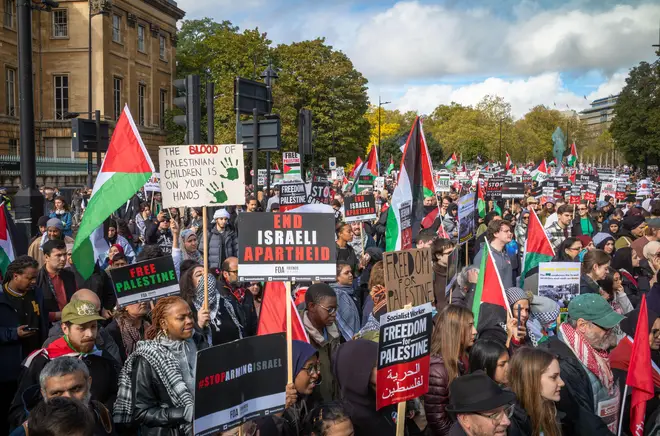
"At times it might look messy and that doesn’t equate to serious disorder or us losing control, but it does equate to us taking robust action.
"Our use of force is to prevent serious disorder, harm coming to people or to prevent serious disruption. Significantly bigger police resource than any other remembrance weekend.
"This is probably going to be one of the most challenging weekends I’ve had and it’s certainly one of the biggest responses we’ve had".
He said that the closest comparison in terms of numbers would be the People’s March against Brexit in October 2019, where between 900,000 and 1.1 million are thought to have taken part.
One person was arrested at that march for trespassing in Parliament. Dozens of protesters have been arrested so far on the pro-Palestine marches, including several for hate crimes. Some police officers have been injured as well.
"There is no doubt this is going to be a very tense weekend," DAC Taylor said.
He added: "We know there are likely to be groups from both sides who seek each other out later in the day. We have constantly assessed intel throughout the week to ensure it’s a proportionate policing plan in place and I do believe if the groups come together there will be serious disorder."
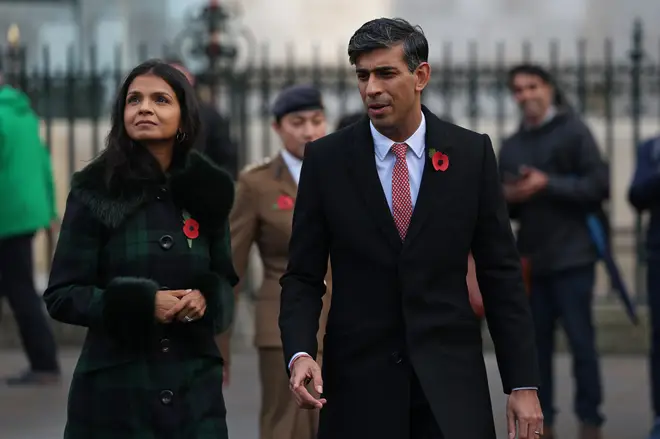
More than 10,000 people have died in Gaza amid Israeli bombing campaign and ground invasion, which follows a Hamas massacre in which over 1,000 were killed.
The protesters are calling for a ceasefire, which neither Hamas nor Israel has said they want, although the IDF has agreed to daily humanitarian pauses to allow aid into Gaza.
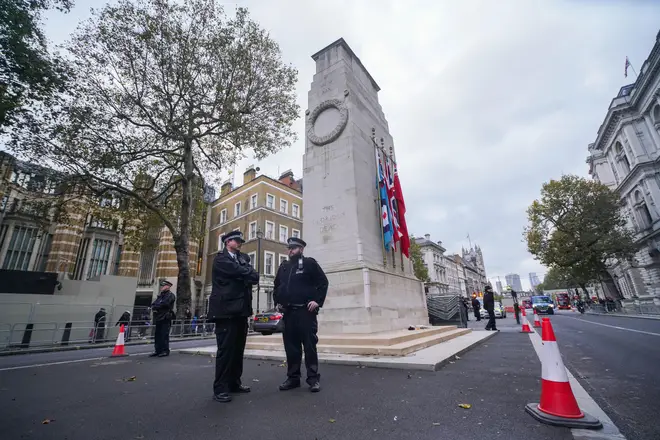
Scotland Yard is also planning a clamp down on convoys of Palestine supporters driving through London’s Jewish communities.
Specialist traffic officers will be deployed in cars and on motorcycles and public order officers deployed to keep communities safe and to ensure any cars travelling towards the protest do not commit offences.
Met Police chief Sir Mark Rowley, said earlier this week that the force does not believe the legal threshold to ban the protest has been met.
The Met has drafted in more than 2,000 officers from forces across England and Wales to assist in policing the weekend’s events.
Police chiefs have reportedly cancelled leave and extended overtime in a bid to ensure officers have enough reinforcement.
Meanwhile British Transport Police bosses said there would be a "significant policing operation" at railway stations.
Assistant Chief Constable, Sean O'Callaghan said: "There are a number of demonstrations due to take place over the course of the weekend and the safety of the public remains our top priority. Our officers will be there to provide a visible reassurance and to ensure the safety of those at transport hubs or travelling through.
"Abuse, intimidation, or violence, particularly that which is religiously motivated, will not be tolerated and our officers will respond robustly to anyone who seeks to cause harm or incite hate."

Caller shares he has lost 23 family members due to the bombs in the Jabalia refugee camp
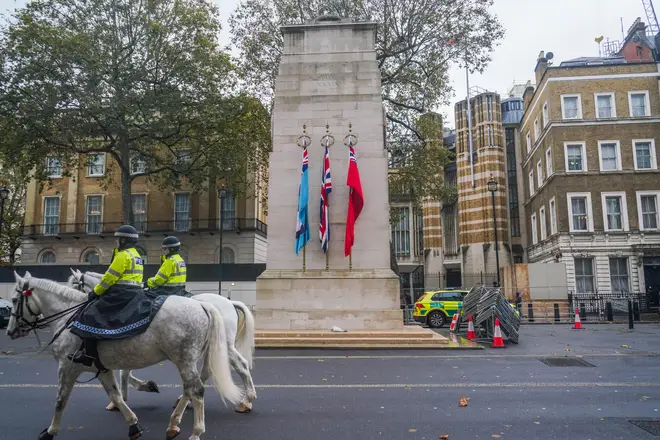
The Prime Minister has faced calls to sack Home Secretary Suella Braverman after her incendiary comments about the planned pro-Palestine, writing in an article for The Times.
Downing Street said on Thursday that it did not clear her piece accusing police of "playing favourites" with protesters, but that Mr Sunak still has confidence in the Home Secretary.
But the Prime Minister is said to be considering Ms Braverman's future, and considering the possibility of bringing forward a Cabinet reshuffle previously slated for before Christmas.
Downing Street is conducting an internal investigation into whether Ms Braverman broke the code by not getting her article signed off fully. If it finds there was a breach, Mr Sunak may either demand an apology, or fire her.
Gavin Stephens, the chair of the National Police Chiefs’ Council (NPCC), said political interference would not stop police from making their own decisions on protests.
Mr Stephens said: “The issues we’re dealing with are divisive, but our job is to keep the King’s peace. The decisions we take are not easy ones, but we do so impartially, without fear or favour and in line with the law.
“We the need the space to make the operational decisions in an independent manner and that is set out very clearly in the Policing Protocol Order which was refreshed earlier this year.
“We don’t have a professional view on political commentary that’s made - that’s the point of independence. It’s important we don’t take those factors into account, and we do things by the law and based on our intelligence.”
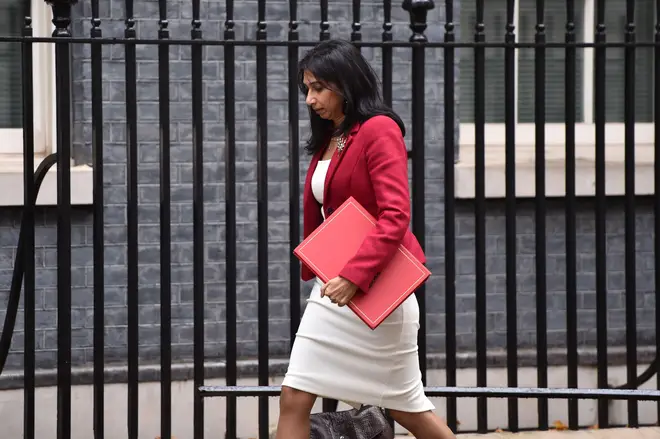
Sir Mark Rowley said the Met could not legally enforce a ban on Saturday’s protest: “The laws created by Parliament are clear. There is no absolute power to ban protest, therefore there will be a protest this weekend.
“The law provides no mechanism to ban a static gathering of people. It contains legislation which allows us to impose conditions to reduce disruption and the risk of violence, and in the most extreme cases when no other tactics can work, for marches or moving protests to be banned.”
The Met Chief added that the organisers of the weekend march had demonstrated “complete willingness to stay away from the Cenotaph and Whitehall and have no intention of disrupting the nation's remembrance events”.
He added officers will use their powers to protect the event should this change.
The demonstrators will not go past the Cenotaph in Whitehall and the march will take place after the two-minute silence at 11am.